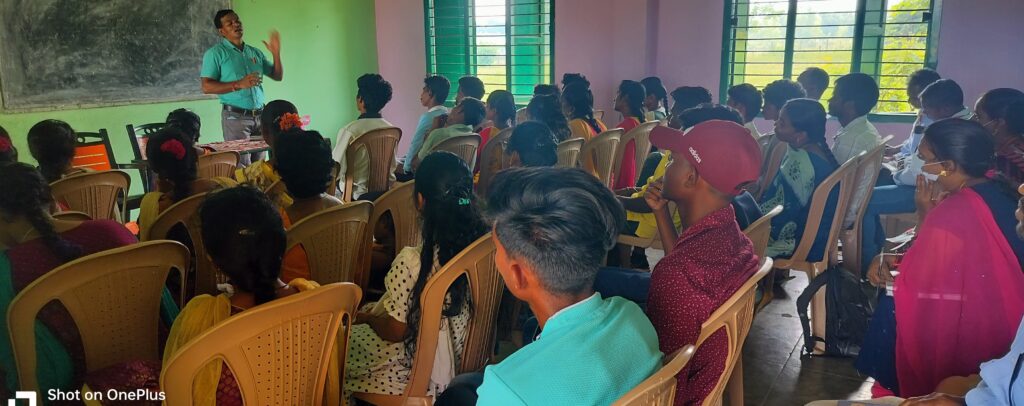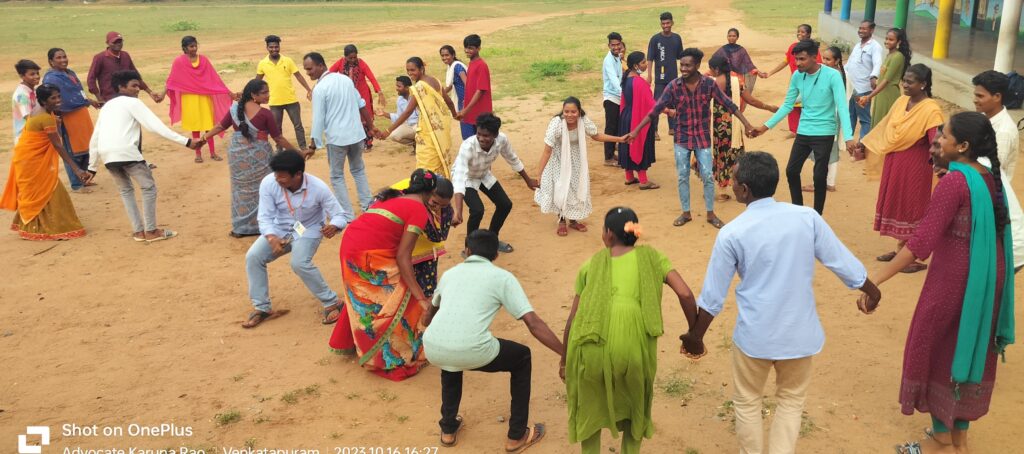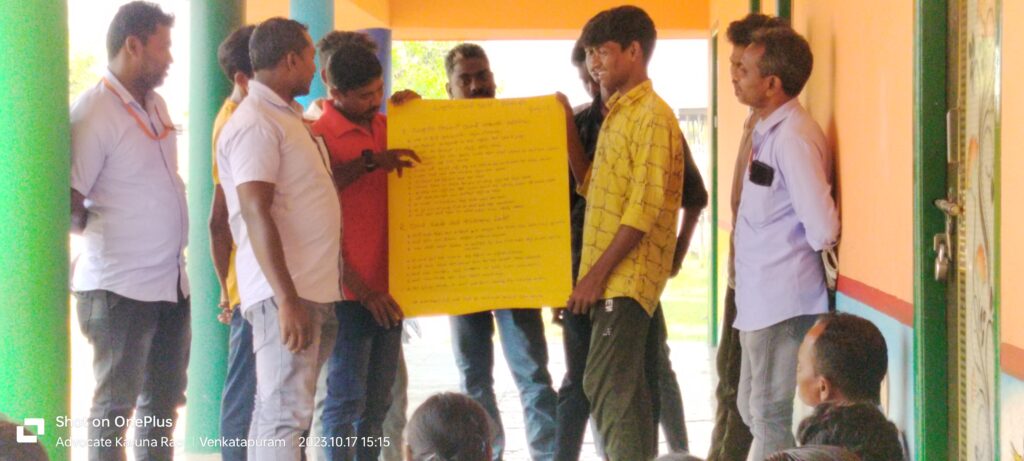


The basic module-6 on ‘Participation and Accountability’ training program was held at CAFED, Venkatapuram, Telangana from 16 – 18 October 2023 as part of Social Inclusion and Democracy Unit of Indian Social Institute Bengaluru in collaboration with Social Education and Welfare Activities Association (SEWAA) Sarapaka, Mother Voluntary Organization, Bhadrachalam, Adivasi Samaja Chaitanya Sangam (ASCS) Kunavaaram and Caussanel Foundation for Educational and Development (CAFED) Venkatapuram.
35 young participants from Bhadrachalam zone in Telangana were empowered in Panchayat Raj Institution. They learnt the importance of participation in Gram Sabha and Ward Sabha for decision making. Through this training, they realised the strength in community participation.
Vinay, youth coordinator, shared that how decentralisation of power has empowered the people at the grass roots, especially women as decision makers. He understood the concept of reservation in PRIs. Along with others, he visited the village panchayat and learnt the functions of PRI. The training capacitated Vinay and others to make sure government programmes are properly implemented and need for accountability. For all this, participation in Gram Sabha and Ward Sabha meetings are at most important.
Padma, Village Cluster Coordinator, believes Self-Help Groups (SHGs) vital for the community development. Also she wants to encourage youth associations. Padma and her friends decided to address issues, healthcare, drainage, and electricity to be improved in their community. They believe that through political participation positive changes are possible.
Prasanth, from a tribal community expressed gratefulness in understanding PESA Act. This law is essential for tribal areas, as it gives them more control over their resources and decision-making. Prasanth is empowered to manage the land and resources. He knows how to actively participate in the village meetings and advocate for tribal rights. This knowledge has made Prasanth more aware and confident about preserving tribal heritage and well-being.
Another youth, Prasad after the training program, has gained a deep understanding of Panchayat Raj Institutions (PRIs) and its implementation. Prasad has also realized the significance of the 73rd Amendment on ‘local self-governance’. He is ready to share valuable information on PRIs with his community. He has become an informed and active member contributing to the overall betterment of his community.
As a facilitator of this training program, I’ve seen remarkable progress. Participants like Prasad have gained understanding of local governance, empowering them in their communities. The knowledge acquired on PRI Act and PESA Act has empowered them to effect community development. It’s inspiring to witness their commitment to bring difference in their villages.
Adv. Karuna Rao
Facilitator, Andhra Pradesh/Telangana
Social Inclusion and Democracy
